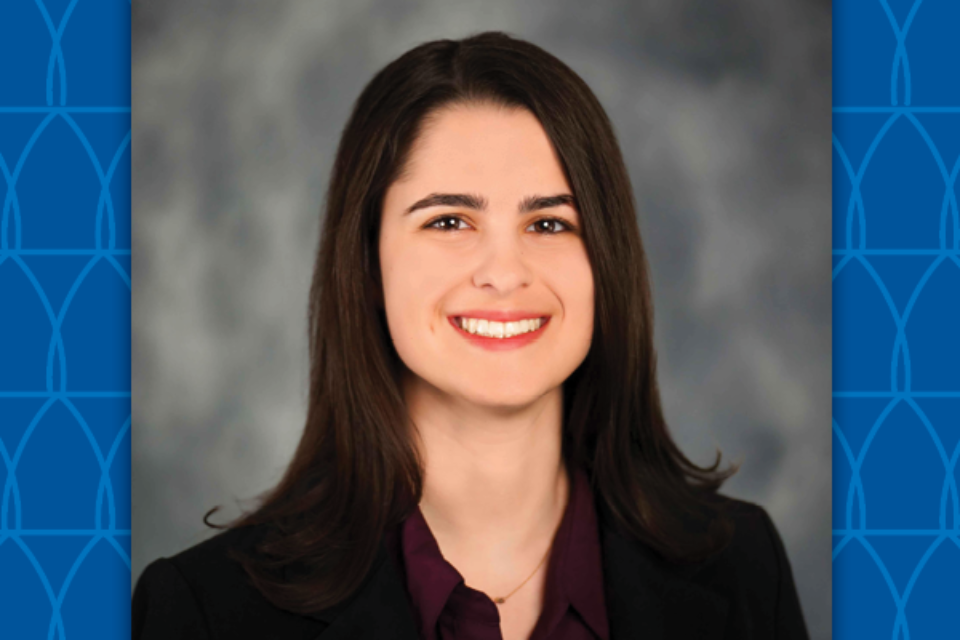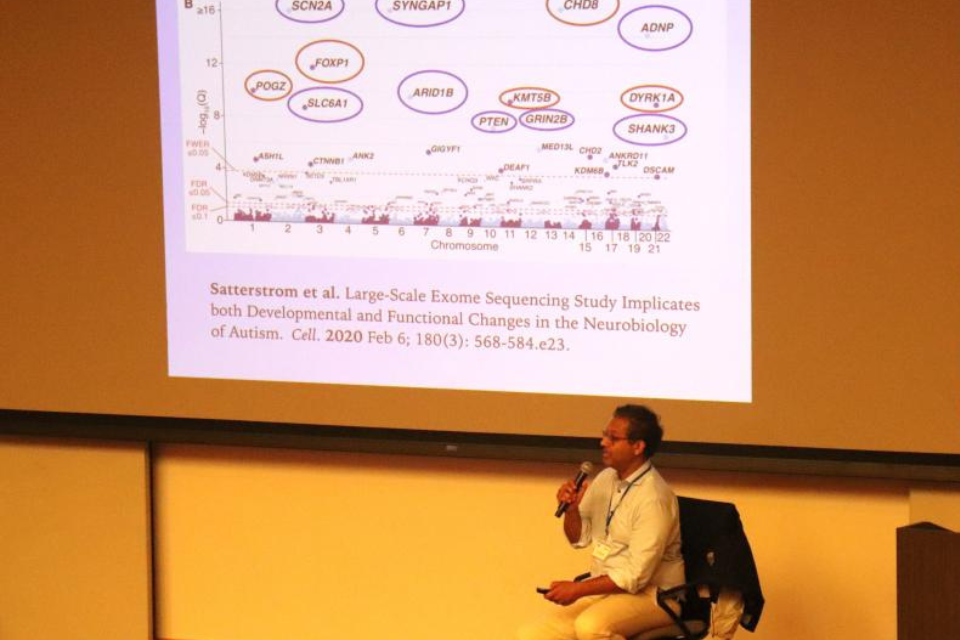Check out our news archive below to learn more about what’s happening in Duke Psychiatry & Behavioral Sciences!
Centennial Staff Spotlight: For Teresa Fisher, Psychiatry is “Never Boring”—and That’s a Good Thing
Teresa Fisher is celebrating 39 years at Duke and 24 years as part of the Duke Psychiatry & Behavioral Sciences staff. As a financial management analyst II, she works on Duke Health Integrated Practice (DHIP) payroll and budgets, University financials, faculty compensation, and special projects.
Through Storytelling, Pre-Health Students Learn How to Connect to the Communities They Serve
Warren Kinghorn, MD, ThD, a professor in psychiatry and behavioral sciences and divinity, co-leads Re-Imagining Medicine, a summer program that asks pre-health students to develop an understanding of their own stories, the stories of their communities, and the stories of the cultures that have shaped them.
A Safe Place to Grow
Psychiatrist Nora Dennis, MD, MSPH, DFAPA, an alumna of Duke's medical school and psychiatry residency, saw a need for more programs to help people return to their lives after a mental health crisis. She has created one at Jubilee Healing Farm, a place she calls “generative and abundant and collaborative." Dennis is also an adjunct assistant professor of psychiatry and behavioral sciences.
Moms’ Moods Linked to Newborn Outcomes
Duke Psychiatry's Sarah Maylott, PhD, and Liz Conradt, PhD, and colleagues documented the complexity of emotional dysregulation in pregnant women and showed that it is linked to neurobehavior in their newborns. The study, published in the journal Pediatrics Research, could have implications for reducing opioid use and potentially improving newborn neurobehavioral outcomes.
Study Links Cannabis and Tobacco to Increased Pain
A study led by Duke University medical student Dana Rubenstein reveals a complex cycle between substance use and pain. Researchers, including Duke Psychiatry's Joseph McClernon, PhD, and Maggie Sweitzer, PhD, found that pain can drive substance use, and substance use can worsen pain. This cycle can result in a perpetual pain loop for the one in five Americans who experience chronic pain.
Centennial Faculty Spotlight: Jeannie Beckham’s 35 Years—and Counting—of Patient Care, Research, and Leadership
Jeannie Beckham, PhD, came to Duke Psychiatry in 1989 as a postdoctoral fellow in pain management. Thirty-five years later, she's a tenured professor conducting research in the department and the Durham VA, with nearly 50 grants and 450+ publications to her name. Beckham also co-leads the department's Division of Behavioral Medicine.
Trailblazer Spotlight: Kafui Dzirasa
Duke Psychiatry's Kaf Dzirasa, MD, PhD, and his team focus on how genetic variants interact with environmental factors to lead to mental illness. He's also interested in how mechanisms in neural circuits underpin emotional behavior. He aims to design a pacemaker for the brain that can regulate the electrical signals underlying mental disorders.
International FOXP1 Conference Brings Together Researchers, Families Affected by Rare Genetic Condition
The Duke Center for Autism & Brain Development recently co-sponsored a first-of-its-kind conference to bring together interdisciplinary panels of researchers, clinicians, families, and patients affected by FOXP1 syndrome. FOXP1 results in significant developmental delays and is strongly correlated with autism.
Cannabis and Tobacco Use on the Rise, Especially Among Older Adults
The number of Americans using both cannabis and tobacco is increasing, with a particular surge among older adults, a new study finds. Researchers at Duke University School of Medicine who analyzed two decades of national data warn that the combination poses greater health risks than the dangers of using either substance alone.
Study: Temporarily Removing Firearms from People at Risk of Harm Saves Lives
An estimated one life was saved for every 17 times an extreme risk protection order—known as ERPOs or “red flag laws"—removed guns from people who presented a risk of harming themselves or others, according to an analysis of the laws in four states, led by Duke Psychiatry's Jeffrey Swanson, PhD.









